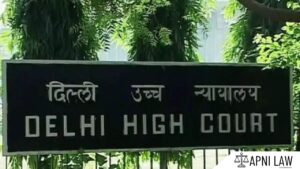Bharatiya Nagarik Suraksha Sanhita (BNSS) – Section 345
This section deals with the consequences of a person who accepts a tender of pardon under Sections 343 or 344 of the BNSS, but fails to comply with the conditions of the pardon.
Code:
BNSS Section 345
Explanation:
This section essentially provides a mechanism to deal with a person who accepts a pardon but then breaches the conditions of that pardon. It lays out the following process:
- Public Prosecutor’s Certification: If the Public Prosecutor believes the pardoned person has violated the pardon conditions (either by concealing information or giving false evidence), they can certify this.
- Trial for Original Offence and Perjury: The pardoned person can then be tried for the original crime they were pardoned for, as well as any other crime related to the matter, including the crime of giving false evidence.
- Separate Trial: The pardoned person cannot be tried jointly with any other accused in the original case.
- Sanction for Perjury Trial: Trial for the crime of giving false evidence requires the sanction of the High Court.
- Evidence of Pardon Acceptance: Statements made by the pardoned person while accepting the pardon can be used as evidence against them.
- Burden of Proof: The pardoned person can plead that they fulfilled the pardon conditions. The prosecution then has to prove they did not.
- Court’s Duty: The court must ask the accused if they fulfilled the pardon conditions before trial, and if they do plead compliance, the court must find whether they did comply before passing judgment. If the court finds they did comply, they must acquit the accused.
Illustration:
Imagine a person is accused of theft. They accept a pardon in exchange for revealing the location of the stolen goods. However, they lie about the location. The Public Prosecutor can certify this breach. The person can then be tried for the original theft charge, as well as for perjury, since they gave false evidence.
Common Questions and Answers:
- Q: What are the conditions of a pardon under Sections 343 and 344?
- A: The conditions vary depending on the specific circumstances and the nature of the offense. Common conditions include providing truthful information, assisting in the investigation, or testifying against other accused persons.
- Q: What happens if the pardoned person is found guilty of the original offense or perjury?
- A: The court will sentence the pardoned person based on the severity of the crime and their previous conduct.
- Q: Does this section mean the pardoned person is automatically guilty?
- A: No. They are still entitled to a fair trial and have the right to prove they fulfilled the pardon conditions.











